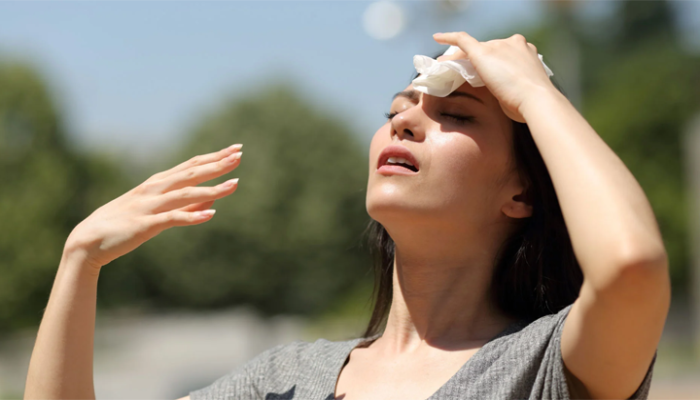
As the temperature continues to rise, the Health Promotion and Disease Prevention Directorate within the Superintendence of Public Health advises the public on the importance of taking necessary precautions to stay healthy and avoid adverse consequences from the effects of the heat. It is important to stay well hydrated during the hot summer days.
Over the next few days, daily maximum temperatures are forecasted to be between 36°C and 37°C. High temperatures cause water to be lost from the body at rapid rates, resulting in dehydration. Look out for signs of dehydration: increased thirst, a dry mouth, dark urine, and passing urine less frequently and in small amounts.
High temperatures can also lead to heat exhaustion or heatstroke. Heat exhaustion is caused by the loss of water and salt through sweating. Common symptoms include feeling weak, faint, or sick; headaches; dizziness; nausea and vomiting; muscle cramps; heavy sweating; and intense thirst. For medical advice, call 21231231.
Heat stroke is when the body is no longer able to cool itself, and the body’s temperature becomes dangerously high. This is less common but more serious. Untreated symptoms include a high temperature, confusion, dizziness, seizures, and loss of consciousness. Heatstroke can cause serious damage to the body and even lead to death. Call 112 for emergency care.
The heat can affect everyone, but some people run a greater risk of serious harm, including older people, especially those over 75 years of age, babies and young children, people with chronic conditions such as kidney, respiratory, or heart conditions, people with mental health problems, and people who work outside.
To avoid the effects of the heat wave, it is important to:
The health authorities are alerting the public to take the necessary precautions to protect themselves from the effects of the heat and to get health advice on 21231231 or call 112 for emergency situations such as heat stroke. It is also recommended to check regularly on older relatives, neighbours, and friends, especially if they live alone, and make sure they can keep cool during the heatwave.
For further information, visit beattheheat.gov.mt and follow HPDPMalta on Facebook and Instagram.
By commenting you are accepting our Comment Policy.